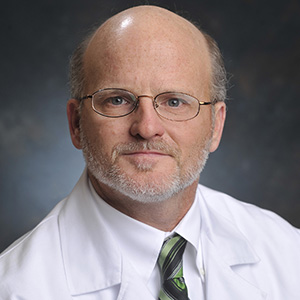-
Building Up the Medical Workforce One Student at a Time: AHEC Scholars and COVID-19
A group of AHEC Scholars and other COVID-19 event workers (photos provided by the Southern Alabama AHEC)
When a hospital or health care center experiences worker shortages, the impact can be far reaching. Shortages impact patient care, put strain on current employees and affect a hospital’s ability to make positive changes as it scrambles to complete daily tasks. The COVID-19 pandemic, including the most recent surge, has put even more pressure on health care systems and exacerbated many situations where shortages were already an issue.
-
Serving the State: An Interview with Statewide AHEC Director Michael Faircloth, M.D.
 Michael Faircloth, M.D.Michael Faircloth, M.D., grew up in a small, rural town in Alabama. His brother was born with Down syndrome and the care he received, even in a town with few resources, inspired Faircloth to put his interest in science to use in service of others: he decided to go to medical school to become a family medicine physician.
Michael Faircloth, M.D.Michael Faircloth, M.D., grew up in a small, rural town in Alabama. His brother was born with Down syndrome and the care he received, even in a town with few resources, inspired Faircloth to put his interest in science to use in service of others: he decided to go to medical school to become a family medicine physician.